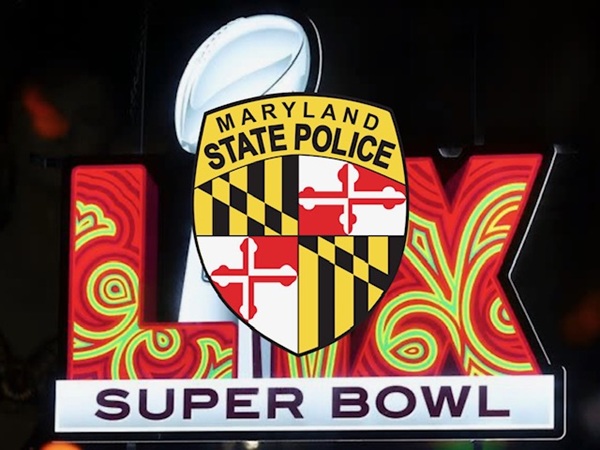BALTIMORE, MD—Super Bowl LIX is almost here, but scammers have been working all year-long to come up with new ways to take advantage of unsuspecting fans. Attorney General Anthony G. Brown is warning consumers to be vigilant against fraud related to betting, tickets or prizes, streaming services, and even merchandise.
Common Super Bowl Scams:
- Online Betting Scams: Illegal betting websites promise high payouts but may refuse to pay winnings and may not properly protect your personal data, including your financial information. Only use licensed sportsbooks regulated by the Maryland Lottery and Gaming Control Agency. A list of sportsbook operators that are licensed and legal in Maryland is available on Maryland Lottery and Gaming’s website, in the FAQ section.
- Phishing Scams – Be cautious of emails or messages claiming you’ve won free tickets or exclusive Super Bowl prizes. These scams often lead to fake websites that steal your personal and financial information.
- Counterfeit Merchandise – Knockoff jerseys, hats, and memorabilia are often sold online at too-good-to-be-true prices. Buy from official retailers to ensure authenticity.
- Streaming Scams – Links promising “free live Super Bowl streaming” may infect your device with malware. Use only legitimate streaming services.
How to Protect Yourself:
- Verify sellers before making purchases.
- Look for secure website indicators (secure websites will start with “https” and show a padlock symbol in the address bar).
- Avoid deals that seem too good to be true.
- Use credit cards for transactions to have fraud protection.
Remember that gambling causes financial losses and should only be done in moderation. Maryland residents seeking help with a gambling problem are encouraged to call 1-800- GAMBLER, a free and confidential helpline that is available 24 hours a day and is staffed by peer counselors and professionals from the Maryland Center of Excellence on Problem Gambling, a division of the State of Maryland’s Behavioral Health Administration. Additional information on problem gambling resources is available by visiting https://www.mdgamblinghelp.org.
If you believe you’ve been scammed or to report suspected scams, call 410-528-8662 or visit https://www.marylandattorneygeneral.gov.
Do you value local journalism? Support NottinghamMD.com today.

